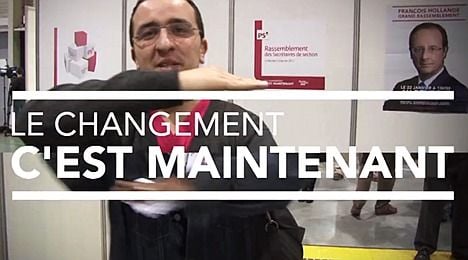The video shows a variety of people making a sign with their arms while they say the party’s slogan for the presidential campaign, “le changement, c’est maintenant” (“change, now”).
The gesture is supposed to indicate equality, a key theme in the party’s manifesto.
Those taking part in the video include senior party figures and rank and file party members.
A series of parodies of the video have quickly sprung up across the internet under titles such as “le ridicule, c’est maintenant.”
Songs and videos have become a key feature of French election campaigns.
The Socialist video brings back memories of the much-maligned video created by the governing UMP party in 2009 which had young party members singing alongside senior politicians. These included current IMF chief Christine Lagarde, who was then finance minister, and Twitter-loving industry minister Eric Besson.
Besson himself tweeted on Wednesday that the Socialists have “done even worse than us,” in a reference to the film.
Enjoy, or not, the videos yourself…
“Le Changement, c’est maintenant” Socialist party video 2011
Le changement, c’est maintenant: le signe de… par francoishollande
UMP, “Tous ceux qui veulent changer le monde” song, 2009
“Le ridicule, c’est maintenant” Parody of Socialist party video 2011




 Please whitelist us to continue reading.
Please whitelist us to continue reading.
Member comments